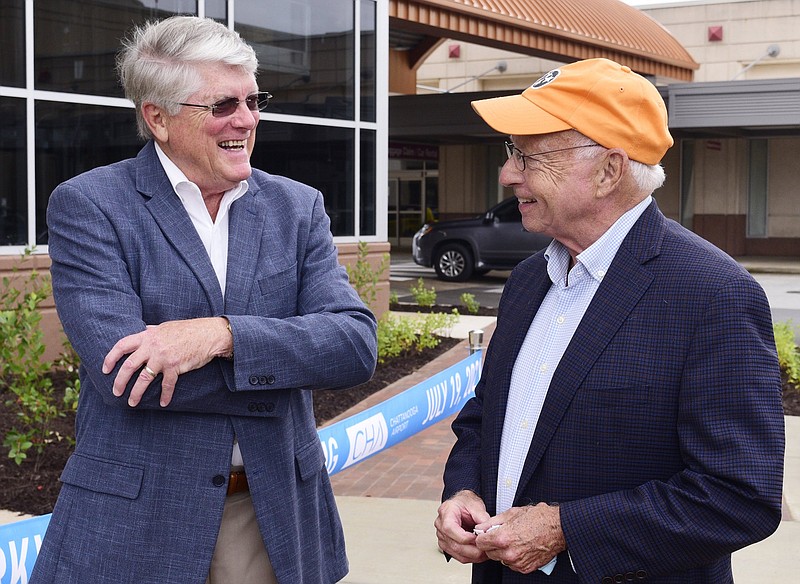A Chattanoogan who left as head of the National Transportation Safety Board just months before the 9/11 terror attacks says the No. 1 risk for commercial aviation today are drones.
Jim Hall, who ended nearly seven years as chairman of the NTSB in January 2001, said there are worries about the deployment of drones as military devises for use against commercial aircraft.
"As the technology grows, drones will be a concern," he said in a telephone interview this week as the nation commemorates the 9/11 events.
At the same time, Hall said security at airports and aboard passenger planes today is a lot better than 20 years ago when it was in "a deplorable state" in America.
"It was that system that caused 9/11," he said, calling the attacks "very preventable."
(Read more 9/11 20th anniversary coverage from the Times Free Press here)
Hall, who now serves as vice chairman of the Chattanooga Airport Authority, said the system at the time placed a lot of the responsibility for security upon the airlines.
"It ended up with a rent-a-cop system. The system failed," he said. "It didn't pay attention."
Hall said he was NTSB chairman when the 1993 World Trade Center bomb investigation took place. People in government, including at the Federal Aviation Administration, knew WTC was a target, he said.
"No one made the next step in that they would use airplanes as a bomb," Hall said.
Since 9/11, the nation has invested in a security system that's needed at airports, he said.
"That system has worked well," Hall said. "The TSA (Transportation Security Administration) has worked. It has recognized that aircraft can be used as a missile and an offensive weapon."
On 9/11, Hall recalled he was on an international flight to discuss transportation safety and learned what had happened when landing in the Taipei, Taiwan, airport.
"I was very upset. There was a lot of emotion," he said, adding that he was not with his family at the time.
The 9/11 terror attack was carried out by 19 members of the Al-Qaeda group led by Osama bin Laden and killed nearly 3,000 people. The attack saw four planes hijacked by the Al-Qaeda members, two of which crashed into the two towers of WTC in New York City.
Air traffic worldwide stalled for days, including in Chattanooga, and the terror attacks weighed on passenger traffic for the rest of 2001. Chattanooga went on to post its worst year since 1996 with 260,801 boardings, according to airport figures.
Traffic in Chattanooga slumped over the next five years and didn't surpass the 300,000 passenger mark recorded in 2000 until 2007 when the airport had 307,500 boardings, according to Lovell Field.
Boardings continued to rise in Chattanooga and hit an all-time high in 2019 of 554,050 passengers. But another event, the coronavirus pandemic, hit air traffic worldwide again last year, sending Chattanooga boardings to 225,289, a nearly 40-year low.
Terry Hart, the airport's chief executive, said while travel is returning, he expects it will take until well into 2022 for traffic to come back to pre-pandemic levels.
Contact Mike Pare at mpare@timesfreepress.com or 423-757-6318.
